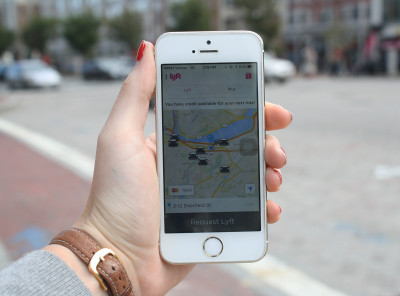
According to a policy brief published Monday by the Pioneer Institute, three regulatory bills currently before the Massachusetts State Legislature could have a damaging effect on transportation network companies like Uber and Lyft.
Matt Blackbourn, research and operations associate at the Boston-based policy research firm Pioneer Institute and the author of the report, said if there are plans to reform companies like Uber and Lyft, then the taxi industry should be reformed as well.
“If you’re going to reform TNCs [transportation network companies], then you should alter the taxi industry so that there are more options for consumer options,” Blackbourn said. “Make sure there are incentives to adopt the same things that we are seeing in mobile-based applications, cashless exchanges, some of the reasons these TNCs have been so successful.”
Two of the bills, which deal primarily with expanded background check requirements for TNC drivers, provide restrictions that are not too demanding for the ride company, according to the report.
“Bills introduced by [Massachusetts Gov. Charlie] Baker in April and by [Massachusetts Rep. William] Pignatelli in January have been well received by the TNC community, most notably by Uber and Lyft,” the report stated. “While comprehensive in requirements to ensure public safety and consumer protection, they do not propose onerous restrictions on TNCs.”
Blackbourn said that Baker’s proposal and Pignatelli’s proposal both involve background checks that Uber already uses.
“Both the Governor’s proposal and Pignatelli’s proposal are really just suggesting what Uber has implemented already in Massachusetts,” Blackbourn said.
The report stated that last bill, however, introduced by Massachusetts Sen. Linda Dorcena Forry and Massachusetts Rep. Michael Moran, has additional restrictive components.
“The Dorcena Forry/Moran bill, however, goes much further in laying out stringent requirements for driver’s insurance coverage and additional background check procedures,” the report stated. “Arguably the most contentious requirement in the Dorcena Forry/Moran bill, however, is that all drivers carry a commercial insurance policy worth $1 million.”
Blackbourn said these insurance requirements would be a huge disincentive for drivers to work.
“This type of commercial policy would be about eight to ten thousand [dollars] per year for drivers,” Blackbourn said. “That would be the kind of burden for operators and the concern is that if drivers are required to carry that kind of insurance, when over 50 percent of the workforce is part-time and has other employment, then it would be a huge disincentive to work.”
Requiring all drivers to have $1 million of insurance would be extremely damaging to part-time drivers and would “kill their business,” the report stated.
The third bill also includes a provision that will require fingerprinting from drivers, which is not a requirement for taxi drivers, Blackbourn said.
“They were expressing that the goal here is to level the playing field with taxis, but one of the background check requirements is that they have to have fingerprints taken,” Blackbourn said. “You’re not seeing current requirements of fingerprint checks for taxi drivers and it’s not creating an equitable field for playing, when the goal is supposed to be making it equal.”
Several residents said they understand the need for regulation, but they hope that the ride sharing business is not impacted too greatly.
Pam Streidel, 42, of Back Bay, said regulations are important as long as they don’t have drastic negative effects.
“Obviously regulation is going to hurt their business a little bit,” she said. “I’m sure limited regulation is one of the reasons these companies have done so well so far. It’s good for these companies to have some regulation, but as long as it doesn’t completely damage their business.”
As a customer of ride-sharing companies, Ana Martinez, 29, of South End, said she would like to see the businesses continue.
“I’m a big fan of Uber and Lyft because they’re so easy to use, so I really hope regulations that will damage their business aren’t passed,” she said. “These companies are successful for a reason and sure some rules are necessary, but there’s no need to try to hurt their business.”
Andrew Freeman, 30, of Fenway, said even with regulations, Uber and Lyft would probably still bring in more business than taxis.
“I know taxis want regulation for Uber and Lyft because these companies have hurt their business but honestly Uber and Lyft are just easier,” he said. “I feel like even with regulation, people are going to continue to give their business to these companies over taxis because of convenience.”






















































































































